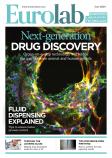MR Solutions has installed Hawaii's first preclinical cryogen-free MRI imaging system to help researchers improve the rate of kidney disease detection through research. This is very good news for Hawaii which has a very high incidence of kidney disease - one in seven residents on the island has chronic kidney disease. This figure is far higher than normal as the disease is prevalent within its residents of Japanese, Filipino and Native Hawaiian descent. The research will focus on disease development and why these particular ethnic groups are more prone to kidney disease.
The 7T MRI imaging system has been installed at the University of Hawaii's Biology department in Manoa where it is being used to visualise soft tissue within the kidneys using a contrast agent this highlights particular areas within the organ enabling researchers to identify any change over time.
Professor Kevin Bennett at the University of Hawaii is the primary researcher on the project and has developed a unique contrast agent for use with the MRI system. Using Professor Bennett's contrast agent his team are working on tracking changes within the kidney to see how the disease starts which will enable patients to receive earlier treatment. He said: "This is a much needed resource to help detect kidney disease within the Hawaiian population - with a view to making it a thing of the past or at least reduce the likelihood of getting the disease." The MRI system will also support a wide range of other projects including neuroscience, cardiovascular, molecular imaging, physiology, and genomics research.
MR Solutions' preclinical cryogen-free MRI technology was chosen due to its superior performance and can be accommodated in most laboratories due to its compact size. As the system is cryogen-free it does not require the costly helium top-ups necessary which are still the norm in older preclinical MRI settings.






